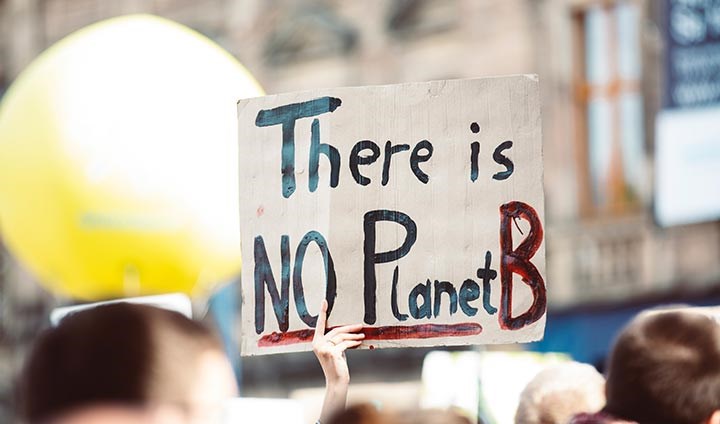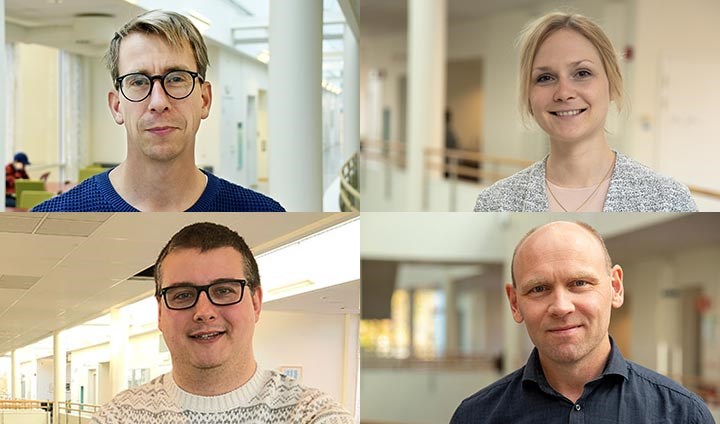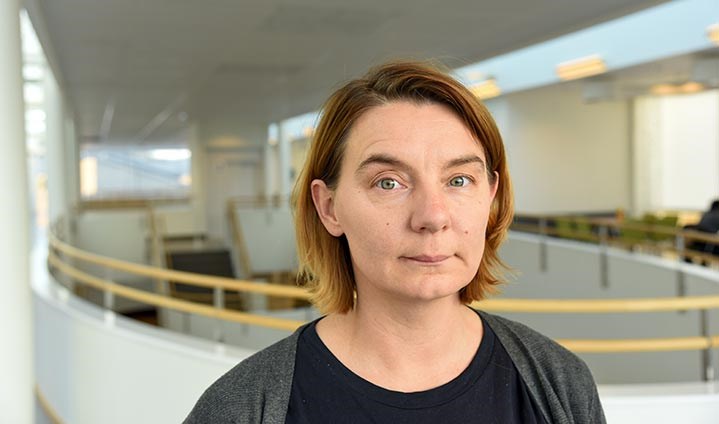Sofia Strid leading research for equality in implementation of EU policies on sustainability

Sofia Strid, docent in gender studies, is the lead researcher in a new EU project set to examine how to advance equality in the implementation of EU goals for sustainability.
“This research will provide knowledge of how we can change our behaviour, leading to innovation and concrete action. This knowledge will then be shared through established networks of governments and NGOs,” she says.
The European Green Deal is a set of EU policy initiatives for a sustainable economy within the union. Goals include making Europe a net-zero emitter of greenhouse gases by 2050, that economic growth is not to be linked to increasing resource usage, and that no people or places are to be left behind in this development.
With EU funding of EUR 5.2 million, the project Accting mobilises research in 34 countries – all of the 27 EU member states, as well as the UK, the US, Brazil, Norway, Serbia, Japan and Turkey. Over four years, 150 researchers will examine how a gender-equal and inclusive implementation of EU sustainability goals and the European Green Deal will be possible.
“Our strength is that by using comparative experiments and case studies, we are going to find out how people make different considerations in relation to the Green Deal objectives – and how these decisions tie in with inequalities in society,” says Sofia Strid.
Magnus Boström, Dag Balkmar, Carolin Zorell, Adam Standring and James White at Örebro University are also part of the research team. While they represent different areas of research, they are united by their interest in inequality and sustainability research.

The European Green Deal includes policy areas such as biodiversity, energy, transport and foods – all of which have an impact on the climate and by extension all of society. By using a five-step model, researchers will seek to identify lifestyle changes that may lead to increased sustainability and equality.
Starting by mapping good examples of local initiatives that reduce climate impact, the researchers then combine the knowledge generated with interviews, providing a basis for case studies. The case studies are compared across countries and analysed. The next step involves gathering policymakers, civil society stakeholders, academics and practitioners to work out solutions, which in turn will lead to local pilot projects. These will be evaluated, analysed and finally shared with other stakeholders in society.
“It is a complex method that monitors eight policy areas within the European Green Deal. We want to contribute to meeting the objectives in an equal, inclusive and socially just way,” says Sofia Strid, emphasising how crucial it is that marginalised groups are not left behind in the transition to a green society.
“This is essential if we are to create broad, popular legitimacy for a green transition. The problem and the need for lifestyle changes concern everyone, not just privileged groups, even if their influence and responsibility are the most significant,” says Magnus Boström, professor of sociology.

The final step of the project is to communicate knowledge and good examples via international networks for governments and NGOs. The network ICLEI gathers 2,500 regional and local governments in over 125 countries and is committed to promote sustainability. Civil society groups have an equivalent in the network ECSA.
Sofia Strid describes Accting as “major”. Over four years, 150 researchers in 34 countries will engage in a research-driven process. In fact, the application received the highest possible scores by the reviewers.
For Sofia Strid and her European research partners, Accting is the third project that has received EU funding in only a year. The role of lead researcher is one she holds not only within Accting, but also within Resistiré – a project aiming to investigate and combat inequality and discrimination in the wake of the corona pandemic. In addition, she is leading the research in the Unisafe project, examining gender-based violence and sexual harassment within higher education:
“The link here is inequality. I view violence as an expression of inequality, an inequality present in society as well as within academia and higher education. Inequalities are also created in times of crises, such as the pandemic, as well as through sustainability policies,” says Sofia Strid.
Text: Maria Elisson
Photo: Markus Spiske /Pexels, Örebro University
Translation: Charlotta Hambre-Knight
